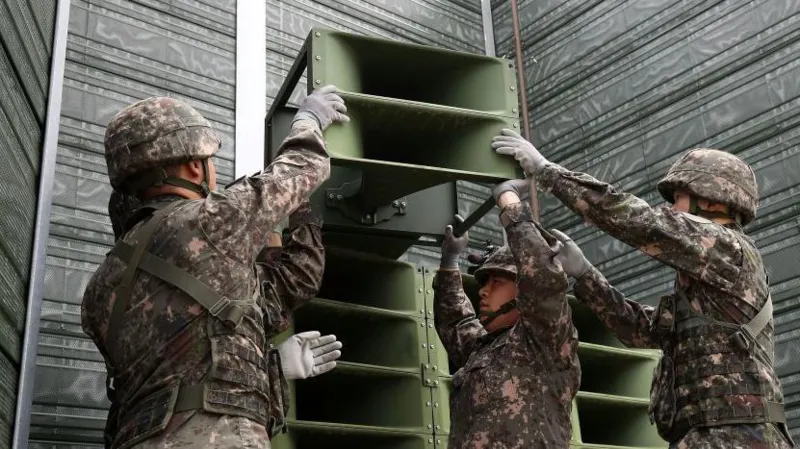South Korea’s military has officially halted its loudspeaker broadcasts directed at North Korea in an effort to rebuild mutual trust and ease ongoing tensions between the two nations.
This initiative follows the recent election of President Lee Jae-myung, who had promised to pursue reconciliation with the North during his campaign. North Korea has historically seen the broadcasts as provocative and even aggressive, and they were halted for six years until being revived in mid-2024. Their reactivation was in response to North Korea’s persistent balloon launches bringing rubbish into South Korean territory.
The content of these loudspeaker transmissions has typically included international and regional news, discussions on democracy, and insights into everyday life in South Korea—messages intended to reach citizens across the border.
Under former President Yoon Suk Yeol, South Korea’s stance towards Pyongyang had grown increasingly confrontational. Yoon was removed from office after declaring martial law in December over vague claims of domestic threats and suspected pro-North elements. His approach led to a sharp decline in diplomatic ties.
President Lee, in contrast, has emphasized diplomacy and de-escalation. One of his first steps, according to the military, is to “rebuild trust and foster peace” between the two Koreas.
However, human rights advocates are concerned about the suspension. Hana Song, Executive Director of the Database Centre for North Korean Human Rights in Seoul, criticised the decision, claiming that the broadcasts were a rare source of knowledge and hope for North Koreans. She believes discontinuing them could reinforce the North Korean regime’s control over its people and signals a shift towards a more conciliatory stance.
Despite such criticisms, many residents living near the border have expressed relief. For months, they have dealt with the disruptive noise from both sides, sometimes during the night. Local officials from Ganghwa county welcomed the development, hoping it would mark an end to North Korea’s psychological tactics and restore peace for local communities.
Reports from Yonhap news agency indicate that North Korea has stopped its balloon campaigns, which also factored into Seoul’s decision. The military has suspended rather than permanently ended the broadcasts, leaving the door open to resuming them if necessary.
South Korean authorities say the broadcasts can travel up to 10 kilometers during the day and as far as 24 kilometers at night. This ban comes about a year after the loudspeakers were restored in June 2024, amid retaliatory propaganda exchanges and waste-filled balloons.
Since the end of the Korean War in 1953, the two Koreas have officially been at war, with no formal peace treaty ever signed. For years, reunification was a fundamental aspect of North Korea’s national rhetoric—until leader Kim Jong Un abruptly abandoned it in 2024.
